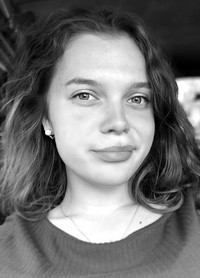Correlation of primary students’ physical activity and progress in regulatory functions
Keywords:
regulatory functions, self-regulation, operational memory, physical activity, sport, primary schoolchildren.Abstract
Objective of the study was to analyze correlations between regulatory functions and physical activity in primary school groups.
Methods and structure of the study. We sampled for the study the 8 year-old 2-grade students (n=103, 47 boys and 56 girls) at Moscow schools and split them up into unsporting Group 1 (n=49) and sporting Group 2 (n=54) of individuals trained at least twice a week for 45+min in 1+ sport groups on an off-class basis for at least one year. The sample was tested on an individual basis, with the test data processed by SPSS 21.0 software written in R-language (version 4.0.3). We used NEPSY-II Neuropsychological Test System (designed to test mental functions in the 3-16-year-olds) to rate the self-regulation elements in the sample. Visual operational memory was rated by a Design Memory subtest; restraining control by an Inhibition subtest run in two series with different triggers/ stimuli; cognitive flexibility by a Sorting Animals subtest using cards with animals; and the short-term auditory memory was rated by the A.R. Luria’s Ten Words test.
Results and conclusion. Our tests and and analyses rated the habitually sporting children meaningfully higher on the self-regulation and short-term auditory memory scales than their unsporting peers, with the highest progress and intergroup differences in the cognitive flexibility tests. This finding gives us the reasons to recommend reasonably high physical activity among the most efficient cognitive progress facilitation methods.
References
Luria A.R. Fundamentals of neuropsychology. Study guide for students of higher education institutions. 3rd ed., ster. 2004.
Maksimova E.N., Alekseenkov A.E. Effect of motor activity on physical condition and intelligence of individual. Nauka-2020. 2019. no. 4 (29).
Nikolaeva E.I., Isayko A.A., Fedoruk A.S. Relationship between operational memory and inhibitory control characteristics and specific immediate environment of preschooler and his involvement in physical activity. Kompleksnyie issledovaniya detstva. 2019. V. 1. no. 2.
Chieffi S. et al. Exercise influence on hippocampal function: possible involvement of orexin-A. Frontiers in physiology. 2017. V. 8. P. 85.
Korkman M., Kirk U., Kemp S.L. NEPSY II. Administrative manual. San Antonio. TX: Psychological Corporation. 2007.
McNeill J. et al. Longitudinal associations of physical activity and modified organized sport participation with executive function and psychosocial health in preschoolers. Journal of Sports Sciences. 2020. V. 38. no 24. pp. 2858–2865.
Miyake A. et al. The unity and diversity of executive functions and their contributions to complex «frontal lobe» tasks: A latent variable analysis. Cognitive psychology. 2000. V. 41. no. 1. pp. 49–100.
Moffitt T.E. Childhood self-control predicts adult health, wealth, and crime. Paper presented at the Multi-Disciplinary Symposium Improving the Well-Being of Children and Youth. 2012.
Morris J. L. et al. The Daily Mile™ initiative: Exploring physical activity and the acute effects on executive function and academic performance in primary school children. Psychology of Sport and Exercise. 2019. V. 45. pp. 101583.
Schmidt M. et al. Cognitively engaging chronic physical activity, but not aerobic exercise, affects executive functions in primary school children: a group-randomized controlled trial. Journal of Sport and Exercise Psychology. 2015. V. 37. No. 6. pp. 575–591.


